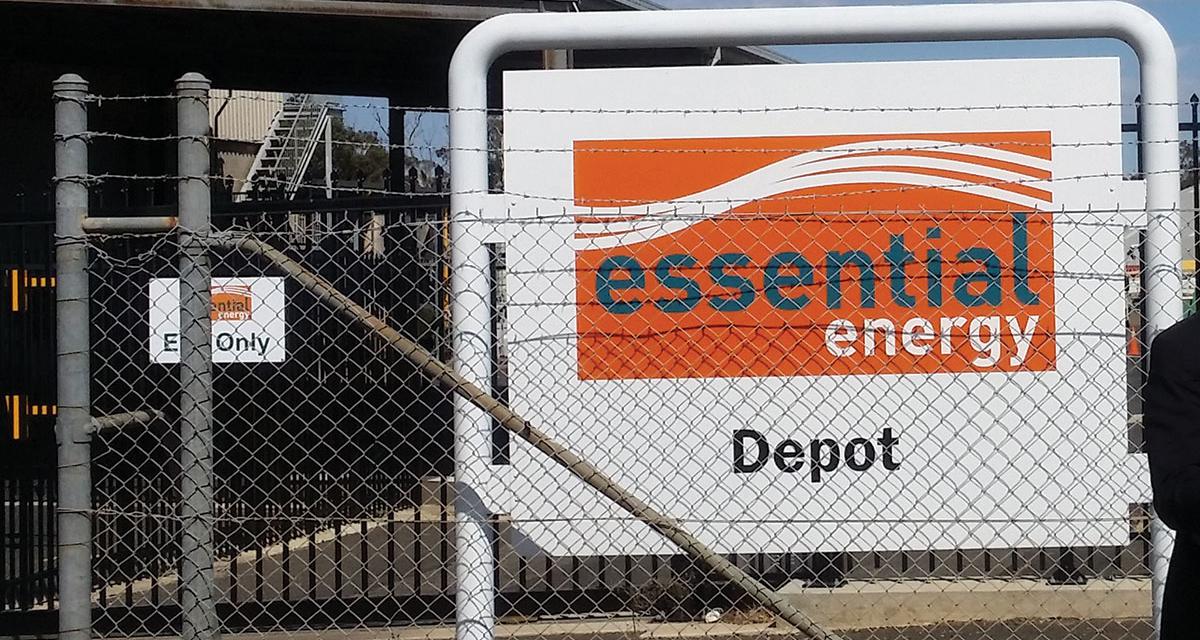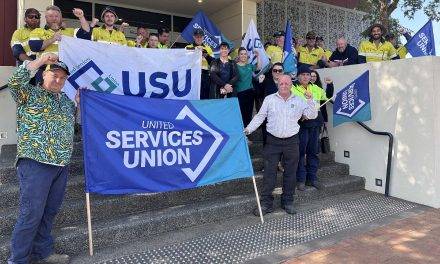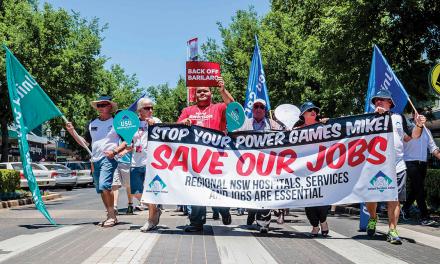Publicly owned electricity distributor Essential Energy has today been granted permission to slash a minimum of 600 regional jobs across NSW following a decision of the full bench of the Fair Work Commission, with forced redundancies expected to commence within weeks.
The decision also removed any restriction of forced job cuts from 1 July 2018, allowing an unlimited number of highly-skilled power workers from rural and regional communities across the state to be axed.
The written decision also revealed that Essential Energy management intends to use outsourcing to carry out further cuts, with the company’s eventual target seeing one in every two jobs go, allowing the size of their workforce to be halved to 1,600 employees by the 2019 financial year.
The FWC rejected a submission from power unions that no redundancies occur before the Christmas/New Year period, allowing Essential Energy to move on redundancies within weeks.
The decision will permit NSW Government-owned electricity distributor Essential Energy to:
- make up to 600 staff forcibly redundant by 30 June 2018;
- have an unlimited number of additional workers leave the company during the same time period if they accept a voluntary redundancies;
- make an unlimited number of staff forcibly redundant from 1 July 2018; and
- replace regional employees with outsourced contractors.
The FWC made the decision despite admitting that its ruling could be expected to have a substantial impact on workers and regional communities, with the written determination stating:
“In the case of Essential Energy, the effects are magnified because of the specialist skills of many of the employees involved, the location of Essential Energy’s depots in country towns scattered throughout NSW, and the scale of redundancies that have already occurred and will likely occur in the future…
“Employees located in country towns will find it difficult to obtain alternative work, either of a comparable standard or at all, in their current locations… Job opportunities are generally limited, and jobs involving the specialist skills of electrical tradespersons formerly employed by Essential Energy are virtually non-existent…
“It is likely that many redundant employees will have to relocate themselves and their families in order to obtain alternative employment. This will necessarily have direct personal effects on employees and their family members in having to change their house, community and school. It may also have effects on smaller towns in terms of the loss of income able to be spent locally and a possible diminution in community involvement.”
The Electrical Trades Union and United Services Union, which together represent the majority of Essential Energy workers, slammed the decision and urged the NSW Government to intervene.
ETU deputy secretary Dave McKinley said his union had made multiple attempts to contact new National Party leader John Barilaro, by phone, email and SMS, but so far had received no response.
“This is the time for the National Party to finally stand up for regional NSW and to demand an end to the wholesale axing of quality jobs by publicly-owned organisations across the state,” he said.
“Today’s decision means that, within the next two years, up to 1,600 highly-skilled power workers who live and work in regional NSW could be without a job.
“The economic and social impact of such huge job cuts — which will tear hundreds of millions of dollars out of the economies of rural communities — will be untold human suffering in the communities the National Party claims to represent.
“This is our challenge for John Barilaro: show that the National Party has learnt from the Orange byelection, stop toeing the Baird Government’s line, and demand that this publicly-owned company not press ahead with these wholesale job cuts.”
USU general secretary Graeme Kelly said unions were also seeking an assistance package from the NSW Government to provide help for any Essential Energy workers that lose their jobs, including retraining, small business advice, and recognition of skills and training.
“This decision is one of the biggest blows to employment in regional NSW that has ever occurred,” Mr Kelly said.
“John Barilaro is now facing his first challenge in his new role as National Party leader and NSW Deputy Premier, and that is to stick up for regional workers and communities directly impacted by this decision.
“The NSW Government, as the owner of 100 per cent of Essential Energy, has the power to intervene and save these jobs.
“All that is needed is for John Barilaro and his National Party colleagues to demand that their coalition partners in the NSW Government put the interests of regional communities ahead of their attempts to squeeze profits out of public companies.”




